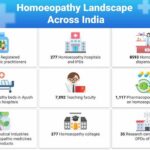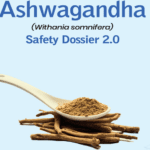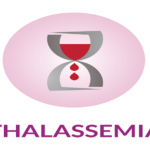- “Expert panel of doctors answer queries in Webinar on ‘COVID-19: Myths Vs Reality’
- Don’t go into the details of any anti-viral medication. Just stick to the advice of your physician: Appeal from doctors
- Remdesivir not a life-saving drug, clinicians only to decide whether it is needed for hospitalized moderate COVID patients: Doctors”
New Delhi, April 30, 2021:
Ever since the COVID-19 outbreak has happened, we have been facing a two-front war, one against the pandemic and another against the infodemic. A webinar titled ‘COVID-19: Myths Versus Reality’ has been organized by Press Information Bureau today, in collaboration with the Government College of Arts, Science and Commerce, Goa, to tackle the infodemic situation. The participants included three eminent doctors: Dr. Rahul Kulkarni- Medicine Doctor and Intensivist at Sahyadri Hospital in Pune, Dr. Chaitanya H Balakrishnan, COVID Coordinator at St. John’s Medical College Hospital, Bangalore; and Dr. Nitin Yashas, Senior Resident, Medical Oncology at Manipal Hospital, Bangalore and Co-Founder of TREAT by Alterdoctor.
Some myths busted and queries related to the pandemic that were answered by the expert panel of doctors are as follows:
Myth: If public water supply is contaminated with SARS-CoV-2, then the entire community will be affected.
Dr. Kulkarni: In whatever research has been done till now, no significant evidence has been found that shows that coronavirus travels through water. Its not a water-borne disease. Drinking waters from affected areas have not been found to transmit the virus. But, in a swimming pool, if there is a COVID-19 patient within close distance, then you may catch the virus when the person coughs or sneezes. Hence, we should avoid public pools which are crowded and maintain 1 mtr distance from other swimmers. Like everywhere, here also it is important to maintain a social distance.
Myth: Hot-water bath or drinking warm-water prevents COVID-19
Dr. Yashas: There was a scientific study on whether hot water can cure common cold. It was found to provide relief in symptoms. At times it can just be a mental comfort or placebo that it is providing relief in symptoms. But NO. Drinking hot water does not kill the coronavirus in the body nor does it cure the disease. In laboratory settings, you need a temperature of 60-75 degree Celsius to kill the SARS-CoV-2 virus. Now, the human body temperature is around 37 degree Celsius. These viruses remain within body cells and the human body maintains a temperature of around 37 degree Celsius. The belief that on taking a hot water bath, the temperature of the body will rise and that will kill the virus is false because, as I said, the core temperature in maintained. Such myths can be harmful as we find that people have taken hot water bath to such an extent that they developed burns on their skin. I would advise people not to do anything that may increase the body temperature. In the summer months, if the body temperature reaches 40 degree Celsius, it may lead to heat stroke and heat exhaustion. So, I reaffirm that drinking warm water or taking a hot water bath does not kill the coronavirus.
Myths and misinformation on Oxygen Concentrators
Dr. Balakrishnan: A lot of people who require hospital beds and oxygen beds are facing this issue globally. Secondly, we have a large population of patients who have pre-existing lung disorders who may be on an oxygen concentrator. These are two key populations to look at. A lot of people are thinking that having an oxygen concentrator at home can help them to tide over the crisis. I agree with that. If you have a patient whose oxygen saturation is less than 94 which classifies as a moderate COVID, then giving supplemental oxygen to such patients till you get a hospital bed will be beneficial. A study published in NCPI has proved this. But the problem is that oxygen concentrators are difficult to get nowadays. Secondly, people tend to use it themselves without accurate guidance from a chest physician or an internal medicine specialist. Doing that can potentially be harmful. This is because some people having long-term respiratory diseases may have normal oxygen saturation between 88 to 92 and we do not want to target supra. But unfortunately, given the craze for maintaining a oxygen saturation of 99, taking a photo of it in the pulse oximeter and sharing it in family group becomes extremely detrimental to patients
Dr. Kulkarni: I have seen patients who struggle to maintain oxygen level despite being hospitalized or in ICU for 40-45 days. We sometimes advise these patients to keep an oxygen concentrator at home so that they may use it if needed. In such scenarios also, O2 concentrators are useful. But then again, it comes down to having a proper guidance. While discharging such patients, we educate them on how to use it and properly monitor the saturation level of a patient.
Do pneumonia vaccines protect against COVID-19?
Dr. Balakrishnan: When the first wave of COVID-19 hit last year and before the COVID vaccine was there, a huge number people wanted the pneumonia vaccine to be administered to them. A lot of people actually put pressure on us to give it to them. There was a small study in Netherlands to find out if there some potential cross-protectivity in giving influenza vaccine. There are vaccines for specific organisms causing different infections. Unfortunately, administering those vaccines does not give you protection against COVID. I urge everybody to know that there is a
vaccine specific to COVID and other vaccines do not protect you against it.
Dr. Yashas: If you have a petrol-powered car, you cannot put diesel in it and make it run. So, there has to be a specific vaccine for a specific agent. Pneumonia vaccine is for disease caused by a different bacterial organism. So, is the influenza vaccine. We cannot expect it to provide immunity against the Novel Coronavirus which emerged in 2019. Thanks to the brilliant works done by scientists in India and abroad, we have a vaccine that specifically targets this virus or its antigen. I urge everyone to take only the COVID-19 vaccine to prevent COVID-19.
Remdesivir for treatment of COVID-19
Dr. Kulkarni: Basically Remdesivir is an anti-viral agent. First of all, it cannot be given at home. Remdesivir is not the only treatment available for COVID-19. It was started to be used in COVID treatment after it was seen in a few clinical trials last year that it has shown some potency to stop or slow down the replication of the virus. It however cannot stop the disease. It is also not a life-saving medication. After some trials, the WHO has also issued a warning to not use Remdesivir. By my personal experience, I feel if it is used wisely in early cases (within seven days of COVID infection) and mainly if the patient is continuously progressively hitting toxic after being admitted in a hospital, then it will be a good choice to go ahead. But only within the first seven days. Afterwards, it hardly is useful, as proven by scientific data so far. If the patient is on ventilator, it will hardly be of any use. It is solely the doctor’s responsibility on taking a call on using it.
Dr. Balakrishnan: Yes, Remdesivir is one of the members of the limited armoury we have against COVID. But it is not a life-saving drug that you have to run behind for getting it for every patient. People are misinformed about it. There are two phases in COVID-19 infection: the first week in which the virus replicates in the system and the next in which the the immune system is triggered. As Dr. Kulkarni said, the first one week is critical. If you are going to give Remdesivir, it should be within those first seven days. If the patient is already in the ventilator and a prolonged case of illness, it is not going to change anything. Infact , UK and US has put out a very strict notion that says: No Remdesivir for mild COVID and also severe COVID (patients on ventilator) and only Moderate COVID patients who are toxic may benefit. But, there is no 100 percent guarantee with Remdesivir. There are lot more drugs. But, from personal experience, I have seen that if you choose the right patient at the right time, then with steroids and Remdesivir, you can get good outcomes. The timing of the medicine is extremely important. If used well, it is one of the drugs to help. But then, it is the clinician’s decision based on what he is seeing and not what Whatsapp or Google is telling the family.
About Fabiflu
Dr. Kulkarni: It is also an anti-viral in oral form. In the first 3-4 days of the illness with mild symptoms, you can start with Favipiravir or Fabiflu. But that again is the decision of the clinician or the internal medicine expert. It is a weakly potent drug and a patient has to take a lot of tablets. That again is a concern. Hence, my advice is ‘Don’t go into the details of any anti-viral medication. Just stick to the advice of your physician’.
About Dexamethasone
Dr. Yashas: It is a form of steroid. Dexamethasone was perhaps the first medicine in the COVID era which showed some benefit in reducing deaths. Now the question is: on whom will it reduce deaths? We have scientific evidence to answer this question. The benefit with dexamethasone is the maximum for those who are having severe disease and are on ventilators. Those having moderate disease and are on oxygen can also derive benefits from the use of steroids. Mild patients or patients without any symptoms absolutely cannot use it. Trials have also shown that it can be bit harmful if mild patients take dexamethasone as it may actually suppress the immune system and prevent the body from fighting the virus in such cases. Hence, my humble request to public is: ‘Please do not panic and start stock-piling dexamethasone. It is to be prescribed only under the supervision of a physician for moderate and severe disease and that too, under specific circumstances’.
Effective usage of anti-biotics in COVID-19
Dr. Balakrishnan: Its very clear from scientific data that giving antibiotics prophylactically in COVID-19 has no role. A couple of studies at UK and also Delhi has shown that injudicious use of antibiotics may rather increase the hospital stay or cause mortality in such patients. So, the tendency to take an over-the-counter azithromycin is completely unadvisable. If you are suspecting that you have symptoms of COVID, get tested, meet a COVID Care physician and take the appropriate step. Use of antibiotics in COVID-19 is completely avoidable. Taking a over-the-counter or Dr. Google prescribed antibiotic is a complete no-no in COVID cases.
Dr. Kulkarni: There are some patients who tend to copy paste the same prescription given to their relatives. Unfortunately that shouldn’t be done. Every patient has some set of symptoms. If you start following the same set of prescription for every patient, you might land up with some other side effects that can be harmful. Trust your clinician, follow whatever treatment they are prescribing and keep in touch with the clinician.
Dr. Yashas: My humble request to patients is that, when in doubt (about treatment), refer to the credible sources (like WHO, AIIMS etc.)
Transmission of COVID-19 from pregnant mother to child (foetus) during child-birth
Dr. Kulkarni: The data available till date is minimal as the disease outbreak started only in last year. It is very uncommon. I have not seen any case where a new-born gets infected from the mother. Even if it happens, it is very difficult to assess whether it is a vertical transmission from or the baby acquired infection from somewhere else. The rate of infection in pregnancy has gone to the higher side in the last 15 months, like in every other patient. 93-95% of these patients are mild cases. No need to panic about it. But, if the patient is on risk, that is have some immuno-compromises (like hypertension, diabetes etc) or in the higher side of age (40 and above), then they may land up in some sort of complications, mostly from COVID Pneumonia. That percentage is also very less. We have not seen any mortality in such cases. In such cases, it is very important to visit a clinician on having symptoms, get thoroughly checked up and keep monitoring your vitals. It has also been seen in case of COVID-19 positive pregnant women, that the delivery may happen early. So, you need to be very careful in the last trimester of pregnancy, You need to keep regular contact with your physician and search for a proper COVID Centre where delivery can take place.
Can COVID-19 be transmitted through breast-feeding to a new-born
Dr. Yashas: As of now, we don’t have any evidence on it. COVID-19 positive mothers can breast-feed her child, but by following certain precautions like wearing a N-95 mask, probably a face shield, hand hygiene etc., so that transmission which happens through respiratory droplets can be prevented as much as possible.
Dr. Rahul Kulkarni: It is not advisable to use a mask on new-borns, unless they are of atleast 2 years of age. That can lead to other paediatric or respiratory problems.
How to deal with patients who recovered and tested again tested positive but has no symptoms?
Dr. Balakrishnan: RT-PCR test will detect any viral particle, especially the nuclear material of the virus. This can be also with some of the dead viral particles. Clinically look at the patient. Leave it to your COVID physician to take the decision. No need to panic.
Dr Yashas: A recent study has shown that patients who persistently test RT-PCR positive do not necessarily transmit it to someone else, for reasons stated by Dr. Balakrishnan. We see in a group of some immune-compromised patients that they may not have fully cleared the virus for which they are still are testing positive. I think, treatment protocol, whatever said and done, is based on whether the person is symptomatic and are the symptoms mild, moderate or severe.
Can a fully vaccinated person be a carrier of the virus?
Dr. Yashas: The vaccine efficacy for Covaxin and Covishield was calculated two weeks after the second dose. Within this time period, any person can catch the infection, become symptomatic and also transmit. You have to have two doses of the vaccine and as studies have shown, it is only after that that protective antibodies start developing. Post-vaccination, chances of transmission reduces as viral load reduces in the body. Vaccination prevents symptomatic COVID-19. That is the endpoint. So, yes definitely, even if a person has been vaccinated, he or she may still carry the virus, because of which the emphasis is on wearing mask, following social distancing and hand hygiene protocol even if you are vaccinated.
Dr. Kulkarni: In vaccination centres, there are queues. When going for vaccination, wear a proper mask and keep it on till you are completely vaccinated. Don’t remove it until you reach home. The second wave started around the time vaccination started in the country. So, a lot of people have the misconception that they got infection from vaccination.
Dr. Balakrishnan: A lot of people who got COVID positive after vaccination blame the vaccine. But, if you have turned positive, it is because you have got exposed and infected. That’s it. It has nothing to do with Covaxin or Covishield. That’s something that public really needs to understand.
Whether COVID-19 is air-borne
Dr. Balakrishna: Most data still points that it is spreading via droplets. It mainly spreads when people don’t wear mask properly. Wear your mask over your nose and mouth, cough etiquette, hand hygiene – these are the three pillars of preventing COVID-19.
Mental Health during the pandemic
Dr. Yashas: Do not get worried by seeing news reports, sourcing information from google or trying to fill yourself with negativity. We also need to understand that 80-85% of COVID cases are mild and there is a very good chance of recovery if early recognition and constant monitoring is done. So, if you are feeling anxious about the pandemic, speak to an expert and go for counselling. We have to remove the stigma which is associated with this pandemic both for the public and for the healthcare workers.
The keynote address was delivered by Prof. Purnakala Samant, Principal of the Government College of Arts, Science and Commerce in Goa. The opening remarks was made by Shri DV Vinod Kumar, Deputy Director of PIB in Goa.







